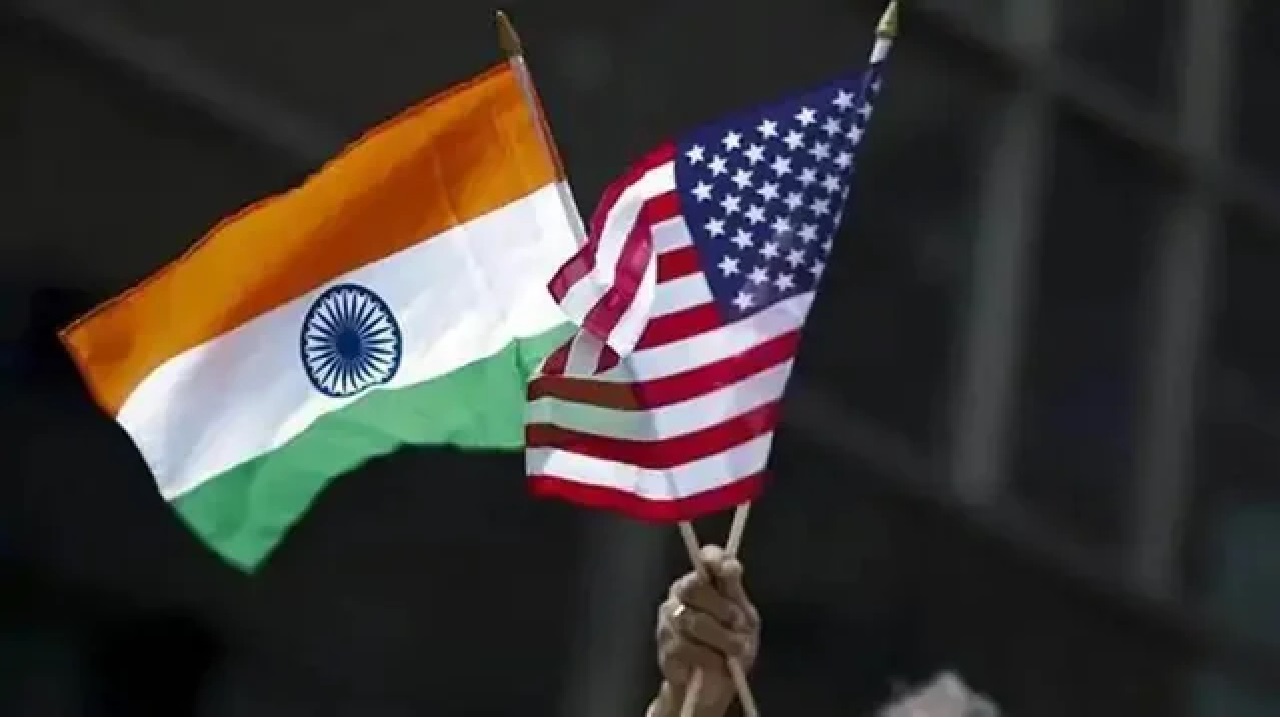
The United States has escalated its efforts to curb Russia’s evasion of sanctions imposed after the 2022 Ukraine invasion, targeting a record number of foreign entities supporting Moscow. The latest sanctions, imposed by the US Treasury and State Departments, mark a significant milestone in Washington’s campaign to disrupt the flow of goods and technology essential to Russia’s war machine. Among those hits are companies from India, China, and Hong Kong, with specific attention on Indian firms accused of supplying Russia with critical components.
Expanded Sanctions Target Third-Party Evasion Networks
In an unprecedented crackdown, the US imposed sanctions on nearly 400 foreign entities and individuals from over a dozen countries, the largest coordinated action yet against third-country firms accused of circumventing existing sanctions. According to US officials, the focus was on countries from which the export of high-priority items to Russia had surged. These items, predominantly advanced microelectronics and dual-use technologies, are seen as essential to Russian military operations in Ukraine.
The latest move is designed to send a clear message to the governments and private sectors in these countries. “This should send a serious message to both the governments and the private sectors of these countries that the US government is committed to countering the evasion of our sanctions against Russia,” stated a US State Department official. The official added that the US would maintain pressure until Russia’s aggression in Ukraine ceases.
The crackdown also targeted Russian and Emirati entities, while major firms in Turkey, Malaysia, Switzerland, and Thailand were included in the sanctions list. While the US action was unilateral, it aligns with broader efforts by allied countries to prevent Russian firms from acquiring critical components and technologies used in warfare.
Indian Firms Face US Scrutiny Over Russian Ties
Amid growing concerns over India’s role in supplying components to Russia, US officials have voiced frustration over emerging trends in trade between Indian companies and Russian firms. The recent sanctions represent the strongest warning to date, with US officials indicating that India must curb the flow of sensitive materials to Russia. A senior US administration official stated, “With India, we have been very direct and blunt about the concerns we have.”
One of the companies under scrutiny, India-based Futrevo, was accused by the US State Department of supplying high-priority items to the Russian manufacturer of Orlan drones, a critical asset in Russia’s arsenal. Shreya Life Sciences Private Limited, another Indian firm, reportedly sent hundreds of shipments containing US-licensed technology to Russia, valued in the tens of millions of dollars.
The US has held numerous discussions with Indian officials, emphasizing the risk of severe penalties if such supply chains persist. Washington’s recent sanctions indicate a heightened willingness to act should diplomatic avenues fail to yield results. The US’s actions suggest that if India does not take steps to reduce these exports, sanctions may become a regular consequence for Indian companies linked to Russia.
Chinese and Hong Kong Companies Among Top Offenders
Alongside India, China has emerged as a significant source of sensitive goods making their way into Russia. According to the US State Department, more than 70% of high-priority items shipped to Russia originate from China, an estimated total of over $22 billion in goods since the onset of the war. “That’s over 13 times the next largest supplier,” said a senior US official, emphasizing the disproportionate scale of Chinese exports to Russia.
Among those sanctioned were several Hong Kong and Chinese firms accused of moving millions of dollars worth of technology and equipment to Russian firms. In response, Liu Pengyu, spokesperson for China’s embassy in Washington, criticized the sanctions as “illegal and unjustifiable,” calling out the perceived double standard of the US’s simultaneous military support to Ukraine. Pengyu labeled the actions hypocritical, underscoring Beijing’s opposition to unilateral US sanctions.
Wider Global Network Targeted, Including Russian Energy Projects
The US crackdown extended beyond military components, targeting Russian energy projects, notably the Arctic LNG 2 initiative led by Novatek, one of Russia’s top energy producers. Arctic LNG 2, a large-scale project in the Arctic region, was expected to produce nearly 20 million metric tons of liquefied natural gas annually. However, mounting US and allied sanctions have forced Novatek to scale back, delaying critical production milestones.
Despite the stringent sanctions on individuals and companies associated with Novatek, the US has held back from applying an executive order, signed by President Biden last year, that would impose financial penalties on global banking institutions assisting Russian evasion efforts. According to a senior administration official, the threat of these penalties alone has prompted major banks to voluntarily comply with the sanctions, diminishing the need for more extreme measures for now.
Ongoing Sanctions Regime Remains Central to US Strategy
As Russia’s war on Ukraine persists, the US and its allies are committed to closing loopholes that could allow Russia to maintain its military capabilities. Deputy Treasury Secretary Wally Adeyemo emphasized that Washington would continue to act decisively to prevent Moscow from acquiring the technologies and materials critical to sustaining its war efforts. “The United States and our allies will continue to take decisive action across the globe to stop the flow of critical tools and technologies that Russia needs,” Adeyemo said.
The latest sanctions are indicative of the US’s broader strategy to hold not only Russia accountable but also countries enabling its war efforts. While the crackdown on Indian firms marks a turning point in US-India relations, the US has signaled its intent to work collaboratively with allied nations where possible, rather than resorting to punitive measures immediately. However, Washington’s patience appears to be wearing thin as the US moves to prevent any further erosion of its sanctions regime.
As the conflict continues, the US remains vigilant against any evasion that could strengthen Russia’s military capabilities. The Biden administration’s approach, combining diplomatic pressure and targeted sanctions, is aimed at dissuading countries from risking economic repercussions by aiding Russia’s defense industry.
(With inputs from agencies)







